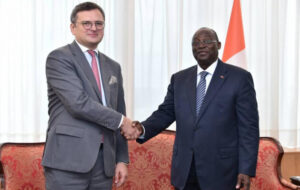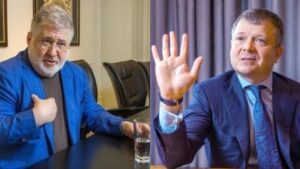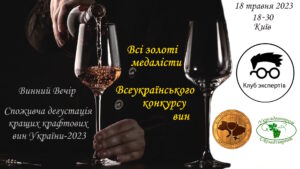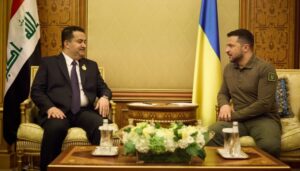
Ukrainian Foreign Minister Dmytro Kuleba announced the start of a second tour of Africa, plans to visit states in all parts of the continent – “from the north to the south.”
“Morocco. At the beginning of my second tour of Africa, Moroccan partners invited me to visit the beautiful Hassan II Mosque in Casablanca, the largest active mosque in Africa. It is a true work of art, on which more than 10,000 Moroccan artists and craftsmen have been working for seven years. And the main thing is that the doors of this mosque are made of Ukrainian titanium. As strong as the Ukrainian soldiers now defending our Ukraine from the enemy,” Kuleba wrote on Instagram.
He noted that this is the first visit of the Ukrainian foreign minister to Morocco since the establishment of bilateral relations.
Kuleba recalled that during his first tour in the fall of 2022, he visited Sub-Saharan Africa, and now he intends to visit “states in all parts of the continent, from the north to the south.”
“The logistics here are brutal, but work is work. Important talks with African leaders and business are ahead,” the minister wrote.
Three key challenges lie ahead, he said.
“First: involve as many African countries as possible in the implementation of Zelensky’s ‘peace formula. Second: to gain support for uninterrupted exports of Ukrainian grain within the Black Sea Grain Initiative and the President’s program “Grain from Ukraine”. Third: to create new opportunities for Ukrainian business,” the head of the Foreign Ministry said.
He stressed that Africa is interested in Ukrainian goods and services, in particular, food, medicines, high-tech equipment, education, experience of digital transformation and strengthening information sustainability, diplomatic experience, cooperation in international organizations.
“That’s what I’ll be working on during the week. Stay tuned,” Kuleba added.

Ukrainian businessman and former owner of PrivatBank Igor Kolomoyskyy is interested in taking away from the mining company Ferrexpo 40% of its main asset – Poltava Mining and Processing Plant (PGOK) in the case initiated by his business partners – Russians Aleksandr Babakov, Evgeny Giner and Mikhail Voyevodin, said Konstantin Zhevago, owner of 49.5% of Ferrexpo.
“These are Russian owners from whom we acquired this stake in 2002. These are Babakov, Giner, Voyevodin. 100% includes Kolomoisky, because he is their partner in Dneprospetsstal and other assets in Ukraine,” Zhevago said in an interview with Forbes Ukraine, answering a question about the customers of the case.
He added that the directors of the British companies that tried to take away the 40% stake in PGOK are directors of many Cypriot companies of both Kolomoysky, Babakov, Voyevodin and Giner.
“It doesn’t happen that in Cyprus, where there are millions of companies, for some reason the same lawyers were executives both in these companies suing me and in the companies that own part of Ukrnafta or other companies related to which Mr. Kolomoysky is involved,” the businessman said.
According to Zhevago, he considers the initiation of this case as a fraud The material states that in 2002 he agreed with the Russians to buy out this stake for $40 million.
“They received a fair price for the shares sold in 2002. Both parties were satisfied with the agreement,” the Ukrainian businessman said, claiming that they then invested $3.2 billion in three mining and processing plants, of which the Poltava Mining had about $1.8 billion.
“I understand that there is a huge temptation to get 40% of the $1.8 billion. At first it was about compensation. They came every two years. I refused to communicate, but they tried to find me through various corrupt politicians, partners or somewhere in London, New York. And all the time this was on the agenda”, – stated Zhevago.
Commenting on the allegations of his alleged involvement in the bribe to the head of the Supreme Court for a decision in this case, the businessman denied them again and stated his willingness to provide investigators with any information on the case.
“I have not received any appeal. I do not understand my status in this case. I am preparing documents to apply for an explanation of my status. I want to cooperate and prove that neither I, nor our lawyers, nor Ferrexpo had or will have anything to do with any illegal actions in this case or any other cases,” he stressed.
Zhevago admitted that it is his voice that sounds on the tapes of the National Anti-Corruption Bureau, as he has personally communicated with all five legal companies involved in this case for the last at least a year, including Goretsky & Partners, which has worked for Poltava and Yeristovskiy GOK since 2019.
Speaking about the possibility of reviewing the Supreme Court’s ruling in favor of Ferrexpo in the case concerning the 40% stake in PGOK, the businessman said that in order to do that it should be proved that most of the judges received bribes.
Zhevago also did not rule out “that the state, through the President’s Office, could scout the possibility of at least nationalizing this stake, if the Russians get it.
In general, the businessman said that Ferrexpo does not need to be saved from the “encroachment of the Ukrainian authorities,” as Ferrexpo – a public company, which is listed on the main platform of the London Stock Exchange and has among its shareholders such investors as BlackRock and JP Morgan Asset Management.
“The shareholders, who together with me have invested $3.2 billion in the company, have the right to defend themselves,” said the owner of 49.5% of Ferrexpo.
He specified that the accusations of non-payment of 10 billion hryvnias of rent by Ferrexpo “have smoothly transformed” into 2 billion hryvnias, called them lies and expressed confidence that this case will not stand up in a single court.
According to him, the company today works as much as it can logistically take its products to markets and as much as it can have electricity for production.
“Logistics with closed ports does not allow to work more than 30-40% – consumption in Europe is limited, and delivering it to any foreign port is very expensive and makes the products uncompetitive,” – explained Zhevago.

On May 18, 2023, a unique wine evening “Consumer tasting of the best craft wines of Ukraine-2023” was held at the Kyiv analytical center “Experts Club”. The event presented the best wines of Ukraine according to the results of the VII All-Ukrainian Tasting Competition “Variety and Terroir. Micro winemaking. Unbreakable”.
The evening was special not only because of the unsurpassed range of wines but also because two winners in two competitions were determined.
Within the framework of the Consumer Tasting of the Best Craft Wines of Ukraine-2023 competition, the winner was the Merlot 2020 wine from TM NAROVYLO WINERY, and the winner of the Best Design of a Bottle of Craft Wine of Ukraine-2023 competition was the Pinot Noir 2020 wine from TM 46 Parallel. Both winners received certificates from the Experts Club .

“This evening gave us a unique opportunity to see, feel and, most importantly, taste the highest standard of Ukrainian winemaking. After all, most of the presented wine brands is yet on public sale,” said Natalia Blagopoluchna, President of the All-Ukrainian Association of Winemakers and Sommeliers.
In his turn, the founder of the Experts Club, Maksym Urakin, emphasized that it is extremely important to support and celebrate the winemaking achievements of Ukrainian craft producers.
“The winner of the competition, Merlot 2020 from NAROVYLO WINERY, demonstrates the highest quality of our national winemaking products, and the creative design of Pinot Noir 2020 from 46 Parallel shows that Ukrainian winemakers not only understand the true taste of wine, but also care about every detail, including the design of the bottle. This perfectly illustrates our passion for winemaking. In my opinion, Ukrainians should develop consumer patriotism, choosing products primarily from domestic producers, because they are no worse and often much better than imported ones,” emphasized Maxim Urakin.
The wine evening at the Experts Club was attended by many well-known personalities, including wine producers, restaurateurs, representatives of the retail industry, media community and others.
It should be noted that the wines that took part in the tasting were highly appreciated by all those present. They represent a variety of grape varieties and winemaking techniques used in Ukraine, including the innovative Orange, 2021 from TM Kovach Wine and Zagrei, 2022 from the National Scientific Center “Tairov Institute of Viticulture and Winemaking”.

The event also featured Ukrainian grappa, which has long been recognized as one of the most unique products in Ukrainian winemaking and has received recognition from experts in the country of origin of this drink – Italy.
The Consumer Tasting of the Best Craft Wines of Ukraine-2023 is an important event in the Ukrainian winemaking calendar, and this year it demonstrated the enormous potential of the Ukrainian wine industry despite the difficult times for our country. This event has once again confirmed that Ukraine has everything to produce high-quality wines that can compete in the global market.
CLUB_OF_EXPERTS, COMPETITION, EXPERTS_CLUB, NATALIA_BLAGOPOZHNAYA, WINE

Ukrainian President Vladimir Zelensky invited Iraqi Prime Minister Muhammad Shia Sabbar al-Sudani to visit Ukraine to discuss areas of cooperation.
“During a meeting with Iraqi Prime Minister Muhammad Shia Sabbar As-Sudani thanked for Iraq’s solidarity with Ukraine and the Ukrainian people, a tough stance in support of the sovereignty and territorial integrity of our state, the principle of inviolability of borders and compliance with international norms,” Zelensky wrote in his Telegram channel.
He met with Iraq’s prime minister Friday while in Jeddah, Saudi Arabia.
“We discussed possible ways for Iraq to participate in the implementation of the Ukrainian peace formula, which is a reliable tool to stop the war, as well as interaction in the humanitarian sphere. We are grateful to Iraq for the support of Ukraine within the framework of international organizations, in particular the resolutions of the UN General Assembly. Invited the Prime Minister of Iraq to visit Ukraine to discuss important areas of interstate cooperation”, – also wrote Zelenskyy.

A heated debate has erupted in Ukraine over claims that the fight against corruption is used to compromise influential business people who support government reforms, The Guardian has reported.
According to the authors of the article, the recent high-profile corruption investigations into the activities of the former head of Naftogaz Andriy Kobolev, ex-general director of Boryspil airport Yevhen Dykhne and former infrastructure minister Andriy Pyvovarsky may raise broader doubts about Ukraine’s domestic political situation and its ability to effectively use billions of European funds to recover from the war.
These concerns have been expressed to the U.S. State Department and the British Foreign Office, and are shared in part by Ukrainian anti-corruption campaigns.
At the same time, the article notes that the issue of corruption in Ukraine is diplomatically sensitive, as the situation could be exploited by Russian propaganda in its own interests. In particular, this could involve such Russian narratives as the hyperbole of corruption in Ukraine or the promotion of theses that anti-corruption institutions, in the creation of which Western allies and Ukrainian civil society played a major role, are “off the rails.”
“Corruption has long been Ukraine’s Achilles heel, with the country making little progress, rising slowly on Transparency International’s Corruption Perception Index from 142nd in the world in 2014 to 122nd in 2021. Despite this, critics argue that some investigations have not focused on genuinely corrupt people, but instead have focused on businessmen who came into government to help revive Ukraine’s economy after the 2014 revolution. The question at stake is what kind of economy Ukraine will become after the war – and whether talented people will risk working for the state again,” the article stresses.
The Guardian cites the opinion of Transparency International Ukraine representative Kateryna Ryzhenko, who called, in particular, for reviewing the work of the Anti-Corruption Bureau of Ukraine.
“This is a good sign that, despite the war, the anti-corruption ecosystem is not afraid to pursue ‘big names’ and to achieve a transparent review of these cases by independent judges. However, these cases have highlighted serious problems in the work of Ukrainian anti-corruption bodies,” The Guardian quoted Ryzhenko as saying.
Also referring to an unnamed Ukrainian ex-official who “participated in the campaign to create anti-corruption bodies in Ukraine,” the authors of the article write that the officers of these bodies seem to prosecute people for violations of corporate governance rather than outright corruption.
The article also discusses various factors which, according to the authors, may cause ambiguity in the anti-corruption segment. In particular, it notes that some critics accuse Ukraine of being overzealous, driven by a desire to show the EU a positive outcome before the possible accession negotiations next year. Others accuse Ukrainian anti-corruption agencies of ineptitude or a punitive mentality that is “still shaped by Soviet mistrust of profit.
The article quotes Andriy Kobolev as saying that “there is an attempt by some to discredit Ukrainian reformers – and, by extension, the anti-corruption bodies themselves.”
The article also discusses details of the trial of Kobolev, who, according to the authors, “faces 12 years in prison if found guilty of allegedly misleading Naftogaz board members by forcing them to pay him a huge bonus in 2018.”
This cites both the position of the prosecutor’s office, which argues that the payment violated a decree limiting the bonuses of state-owned enterprise managers and accuses Kobolev of misleading the Naftogaz board, and Kobolev himself, who denies any wrongdoing, stating that he warned the board about the decree, but an independent legal adviser said that the board had the exclusive right to decide on bonuses.
The article cites Kobolev’s counterargument that “the size of his bonus was determined not by him, but by the supervisory board. It goes against all the rules of corporate governance when the head of a company determines his own remuneration,” as well as the opinion of Claire Spottiswood, a former British gas regulator and former chair of Naftogaz’s supervisory board, who said that the board unanimously approved the bonus after receiving legal advice. In a statement she signed along with two other former supervisory board members, Spottiswood said that “it was a brave act of leadership on Kobolev’s part to take on an astoundingly successful case” that many thought was unwinnable. She also claims that she “never gave an interview to the NABU.”
Mark Savchuk, head of the civilian body that oversees the agency’s anti-corruption work, also criticized the NABU, telling the Kyiv Post newspaper, “The Ukrainian company received $4.6 billion, so no damage was done. These additional funds were then invested in Naftogaz’s infrastructure or paid to the state in the form of dividends. To say that the person who achieved this did it in a corrupt way is strange. In my opinion, the law enforcement agencies are making a mistake”.
Although, as the authors of the article acknowledge, Kobolev’s award “may be morally questionable,” they also appeal to the fact that “during his time at Naftogaz, he transformed the company from a failure into one that provided 15 percent of all Ukrainian state revenue,” and that “after the war began, he used his knowledge of the Russian gas industry to push for tougher sanctions against Moscow, as acknowledged in a letter written in his defense by John Herbst, the former US Ambassador to Ukraine.”
In addition, according to The Guardian, Kobolev is “not the only businessman caught up in this conflict. The second court case cited in the article is the case of Yevhen Dykhne, who, according to the authors, “was sentenced to five years in prison for leasing premises at Boryspil airport to private businesses, such as stores and cafes, without using the state competitive selection process, which would have taken two years.”
The article notes that Yevhen Dykhne himself “did not receive any personal benefit, but the court ruled that only the state has the right to lease the property and calculated that Dykhne’s actions resulted in a loss to the state of 15.7 million hryvnia.” Dykhne himself calls his verdict “worthy of Kafka.
The third high-profile trial mentioned in the article was the case of former Minister of Infrastructure Andrei Pivovarsky, who, according to the authors, “is accused of depriving the state of $30 million by deciding in 2015 that only half of the port fees at the Yuzhny seaport on the Black Sea should go to the Ukrainian Sea Ports Authority.
At the same time, the article quotes Pivovarsky himself as saying that the other half should go to private companies on the condition that they would reinvest the money received in maintenance and that his goal was to make the port more efficient.
The Guardian also notes that Pivovarsky was in charge of deregulating the Ukrainian economy at the time, and according to him, he notified the Justice Ministry about the reforms. He is not accused of receiving private benefits, but the NABU insists that only a state-owned company has the right to collect port fees.
The newspaper also quotes Pivovarsky’s recent Facebook post: “Only now I realized the price of my sincere desire to change the country for the better. I apologize to my wife and children for what they have gone through with me.”
Finally, The Guardian notes that the NABU “did not respond to a request for comment for this article.”
However, it notes that “critics (of the anti-corruption bodies – ed.) admit that some businessmen walk a fine line between showing initiative and abuse of office. But they warn that Ukrainian prosecutors distort the essence of financial crimes”.
“If someone doesn’t figure it all out, Ukraine may find that it gloriously won the war, and then find that it lost the world,” the authors of the article state.
On May 18, the Supreme Court of Ukraine started considering the appeal of the ex-general director of Boryspil Dykhne against the court’s sentence of five years in prison.

Over 4,000 participants joined the discussion on the future of Ukraine during the architectural and construction BUSINESS FORUM “Reconstruction of the country. Change strategy for the architects, developers and builders” organized by the Confederation of Builders of Ukraine together with the Media Group DMNTR | “House and Interior”.
“Since the Russian Federation full-scale invasion started, more than 50 million square meters of housing, which is about 9% of the entire housing stock, more than 1.2 thousand hospitals, more than 3 thousand educational institutions, thousands of kilometres of roads, hundreds of bridges, enterprises, infrastructure facilities have been destroyed or damaged. The homes of at least 1.3 million Ukrainian families have been damaged or destroyed, over 5 million Ukrainians have been forced to flee the country. We cannot know how long the war will go on but there is the task now to restore. And it has already started. To build better, al processes must be systematic, fast and transparent,” the President of CBU Lev Partskhaladze said, during the opening of the forum.

Over 9 hours of the main program discussion and 3 hours of the discussion within the framework of the Community Recovery Forum took place non-stop at several venues.
In the first panel of the main hall “Investments. Institutions. Reconstruction and integration of Ukraine into the global business context”, the state instruments and programmes for attracting international aid, which had already been implemented, were discussed.
In particular, the Head of Implementation of the State Agency for Restoration of Ukraine Vadym Nozdria described the agency functions and offices supporting at the local level, which help the communities to draw up the restoration projects and look for the donor financing based on priorities.
The co-founder of the RISE Ukraine Coalition, CEO at Better Regulation Delivery Office (BRDO) Oleksii Dorohan spoke about the launch of the digital ecosystem DREAM and informed about filling it with potential projects.
“The restoration projects should be entered into the Sectoral System to receive state funding. 5 thousand projects have already been submitted through the system, and when the government decides, which projects it will finance from the Fund for Elimination of the Consequences of Armed Aggression, the decisions will be made based on the digital analysis and comparison of projects not on paper,” Dorohan said.
There was a heated debate regarding the most pressing issue, which is the IDPs housing provision and destroyed housing reconstruction. The most effective and democratic tool is a mortgage, that is why the options for making the state affordable mortgage program eOselya more effective were discussed.
“1 thousand loans worth 1,3 billion UAH have already been issued. It is not much but it is the beginning,” the Deputy Minister of Economy Oleksandr Hryban said.
The Head of the Transformation Office and official of the Ministry for Restoration of Ukraine Maksim Bakhmatov emphasized that only a small part of the aid would come as a grant and the most part would be loans or private investments. And the state, communities and business joint task is to guarantee transparent selection, implementation and financing procedures.
Lev Partskhaladze informed that CBU, the only representative of Ukraine, together with the European Construction Industry Federation (FIEC), which unites 32 countries, and others had developed a general draft of recommendations for the future reconstruction of Ukraine. It contains clauses regarding open and transparent procurements, requirements for the equipment and materials, etc.
“In particular, there are recommendations on payment security, setting appropriate standards, training for communities, contractors, architects and many others, allowing us to rebuild better than before and as quickly as possible,” he said.
At the architectural block, the participants focused on the reconstruction philosophy, energy efficiency and inclusiveness in particular. Already developed projects, which could speed up the reconstruction, were shown. The consultant of the GIZ Project “Promotion of Energy Efficiency and Implementation of the EU Directive about the Energy Efficiency in Ukraine” Svitlana Berzina focused on inevitable implementation of green standards, both in relation to building materials and projects in general.
Andrii Pashenko showed the educational institution typical projects. The Head of Construction Centre Project Office of the Steel Manufacturing Group METINVEST Tetiana Skrypka presented the “Steel Dream” project, houses with a metal frame of different heights and purposes.
During the discussion, the Co-founder and Principal Architect at Archimatika company Dmytro Vasyliev emphasized that the urban planning decisions of rural urbanism need to be rethought during the liberated territories restoration.
The topic of urban planning policy was the main one during the third panel discussion. The analytics presented by LUN (primary and secondary housing) and CBRE Ukraine (commercial real estate) showed a positive trend towards general market recovery and investment interest in Ukraine in particular. But the panel moderator, Founder and Head of Advanter Group Andrii Dligach, emphasized that the main issues had not been resolved yet, either at the state level or at the community level. Where exactly and who should we build the houses and industrial facilities for? Should we restore infrastructure with public/loan funds or private investments? How should we stimulate people to return and invest in business development of various formats, etc.?
In particular, the panellists, including active business representatives, emphasized that it is business that is able and has the opportunity to attract foreign investments (both direct and in form of funds). And the expectations of safety and legal protection conditions from the state institutions have not changed.
In addition, as a part of the BUSINESS FORUM, the Community Recovery Forum, which brought together the government officials, local self-government associations, regional military administrations, mayors and village heads, as well as the industry experts, was held.
During the discussion, the Chairman of the Secretariat of the Ukrainian Association of District and Regional Councils Yuriy Andriichuk pointed out the instruments that would stimulate investment in the east of the country are urgently needed. “We consider the 75 km border zone in the East and North should be a priority. Our territories should not be liberated only but there should be the life, and people should return,” he said. The expert drew attention to the fact that it is necessary to attract such tools as concessions and international insurance programs in addition to loans and grants.
“We have already compiled issues of 1,800 settlements in the gray zone. The insurance companies, which will provide the opportunities to create jobs, are needed for an investor to come there,” he said.
During the forum, the President of the Confederation of Builders of Ukraine Lev Partskhaladze and Head of the Association of Small Cities of Ukraine Pavlo Kozyrev signed the Memorandum of Cooperation on joint actions aimed at increasing the capacity of local self-governments of Ukrainian communities to restore the communities and territories affected by Russia’s military aggression. The cooperation provides advisory, informational, expert and analytical, as well as other support, organization and implementation of joint events, projects and programs using the digital platform “SUPERMARKET OF SOLUTIONS FOR COMMUNITIES” as an effective tool to interact with local self-government officials.
In total, more than 40 speakers took part in the forum discussions and several hundred viewers joined the online broadcast.
During the forum, architectural bureaus, manufacturers and suppliers of products and technologies presented their projects, products and technologies at the exhibition venues. There was also an exhibition of the works of All-Ukrainian competitions Ukrainian Urban Awards and Interior of the Year. At the same time, master classes of architects, urbanists, designers and developers were held on additional venues in a non-stop format from 12:00 to 21:00.
The organizers transferred 500,000 hryvnias to the Fund of the President of Ukraine Volodymyr Zelensky UNITED24, destination: Reconstruction of Ukraine.
Lev Partskhaladze emphasized that the BUSINESS FORUM primarily aimed at the consolidation of efforts of all those who will be involved in the reconstruction of Ukraine.
“That is why it is important to bring together government officials, business, communities, international community, etc. on one platform. I am sure that the reconstruction of Ukraine should be implemented quickly, efficiently and transparently due to the synergy and active participation of the professional public and local communities,” he concluded.
General sponsor: Metinvest
General Partner: ARCHICLUB
Finance Partner: Bank Globus
Strategic Partner: LUN, Forbes
Partners of the event: SAGA Development, TOPIAR, TOMA GROUP, Kolorit, Farba Service, Світ Меблів, Sensar Development, Міністерство дверей, KMD- facade solutions, BUDOVA, ADVANTAGE AUSTRIA Ukraine, Креатор-Буд, Інтергал-Буд, UGLA, MANEZH, Beloded Landscaping, Galleria Porcellanato, Інститут екологічного управління та збалансованого природокористування – проєкт GIZ Energy Efficiency and Climate Projects, СПС-БУД, Нове Століття, Royal House, ГК «Моноліт», Reynaers Aluminium Belgium, АГРОМАТ, ТОВ Данко, GalantPole, hansgrohe Ukraine, KyivBuild, ПБФ ГРУП, Оскар Груп, Ribas Hotels Group, Harmet Modular Houses, Caspian Servise, Natuzzi, Bosphorus Development
General Media Partner: Interfax-Ukraine
Media Partners: Build Portal, ProfBuild, Commercial Property, Хмарочос, АФНУ Україна, Асоціація малих міст України, Асоціація Інженерів-Консультантів України, UkraineInvest, HD Technopolygon, Українські Новини, ROYAL Design MAIN, Property Times, Soft Loft, Інформатор, StroyObzor, Marketer, Economist.com.ua, Портал нерухомості Budynok, Vidbudova, Mind. UA, Український центр сталевого будівництва, Zagorodna.com, Аспекти Будівництва, Home Ideas Supply, Comments.ua, Aspekty.Media, Київ | Вайб твоєї столиці, HIS.ua, LIGA ZAKON, Ukrainian Association of Government Relations Professionals and Lobbyists, Coatings-UA.com